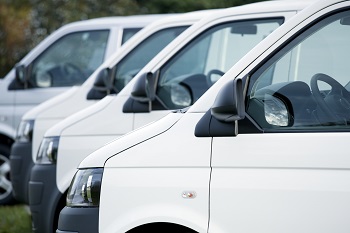
Does My Commercial Auto Insurance Have Deductibles?
Your commercial auto policy will have coverage limits tailored to the needs of your business. Furthermore, your policy will address your unique risks and needs as a driver. Therefore, your personal cost burdens will vary. However, one personal cost that you will almost always have to pay is your coverage deductible. It is a personal cost loss, regardless of your coverage limits. Let’s look at this topic more closely.
Your Commercial Auto Coverage
If you own or drive a vehicle for business, you have to carry insurance on it. Just like with your personal car, your state will likely require your commercial vehicles to have coverage in place.
However, unlike with your personal car that you use privately, business vehicles must have commercial auto insurance. The reason for this is because the risks of insuring business vehicles are different from those of personal cars. You will use and drive the vehicle in different circumstances. The business will also have an insured interest in the vehicle. In other words, if something happens to the vehicle, the business could suffer a financial loss. A commercial auto policy will address these needs.
Drivers who:
-
Drive a single vehicle or fleet of vehicle owned by their business will likely need commercial auto insurance.
-
Operate their personal cars on official business, such as realtors, will need a policy. Commuting to work or running an errand means you won’t need coverage, however.
-
Transport people for fees, or make deliveries, will need coverage.
The key point in determining if you need coverage is how you will use the vehicle. Running a few errands for your boss won’t merit coverage. Making deliveries, transporting clients or driving a company-owned vehicle might, however. Talk to one of our agents about your need.
Coverage Within a Policy
In most cases, commercial auto insurance will include a lot of coverage elements similar to your personal auto policy. These can include:
-
Liability insurance: Most states require drivers to carry this coverage above minimum levels. Coverage will help you pay for the losses of others if those losses were your fault. Most people carry at least $100,000 in coverage.
-
Collision insurance: Coverage will help you pay for the damage you do to your own car in a wreck or other collision.
-
Comprehensive insurance: If occurrences like weather, fire, theft, vandalism and the like damage your car, this coverage can help you pay for your losses.
-
Uninsured/underinsured coverage: If another driver doesn’t have appropriate liability insurance, then this coverage can help you pay for your own damage that is their fault.
As you add each coverage element to your policy, then your premium might rise. However, you might be able to use your policy’s deductibles to help you cover your losses. That can make your deductible among your policy’s most important elements.
Understanding Your Deductible 
A deductible is your personal responsibility for the cost of an insurance claim. Almost no commercial auto policy will pay 100 percent of your damage costs. The insurer, in order to share part of the costs will you, will likely require the deductible.
You will have to pay the deductible cost. Then, your insurer will pay the remainder of your claim, up to your policy’s coverage limits. Keep in mind, your deductible is not the same thing as your policy’s maximum limits.
Deductibles will apply when you make claims on your:
-
Collision coverage
-
Comprehensive coverage
-
Personal Injury Protection (PIP)
-
Uninsured/underinsured coverage
-
Gap coverage
Keep in mind however, liability claims usually do not have deductibles.
A Working Deductible
Let’s say that you set out to make a delivery in your company car. While on the way, one of the tires blows, you lose control and crash into a parked car. Your liability insurance will likely pay for the other party’s losses. However, you will probably have to make a claim on your collision insurance for your losses.
Let’s say you have a $1,000 deductible. The damage to your vehicle will cost $5,000 to repair. Therefore, you will pay the $1,000 up front. Your collision insurance will then pay the remaining $4,000 on the claim. The formula is Total Claim – Deductible = Insurance’s Share. In this case, $5,000 – $1,000 = $4,000.
Keep in mind, if your damage costs fall below the cost of your deductible, then your insurance policy won’t pay. For example, if you have a $500 claim, but have a $1,000 deductible, then you will pay the full $1,000 up front.
In most cases, the available deductible limits on your commercial auto policy will look similar to those on a personal policy. However, some commercial auto policies will start with higher deductibles ($1,000+). However, your agent can help you compare costs to determine the one that’s best for you.
One perk of the deductible is that it might lower your insurance premium. For example, if you have a $2,000 deductible instead of a $1,000 deductible, you might pay less for your policy. That’s because you’ll take some of the cost of covering you away from the insurer. Therefore, they might not have to charge you as much.
Ask your insurance agent what deductible limit is the best one for you. Generally, you will need to choose a deductible that you can afford to pay. If you have a too-high deductible, you might encounter financial difficulties. If you carry too low a deductible, you might pay excessive premium costs. The key is to strike a balance.
Categories: Blog
